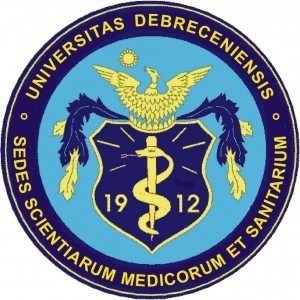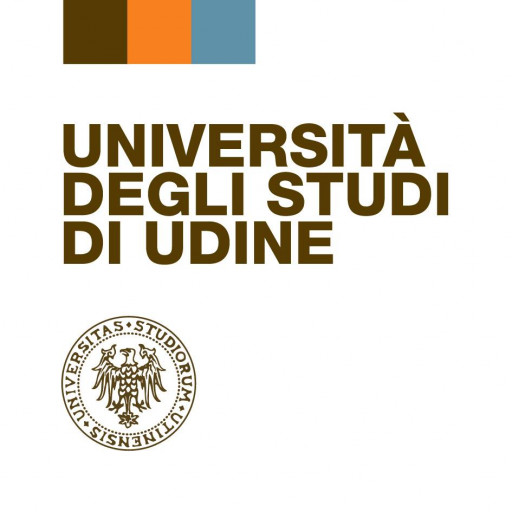The Bachelor’s degree program in Animal Science at the University of Debrecen offers a comprehensive education designed to prepare students for a successful career in the fields of animal husbandry, veterinary sciences, and agricultural management. This program combines theoretical knowledge with practical skills, enabling students to understand the biology, ecology, and management of various animal species. Students will explore animal nutrition, genetics, breeding, welfare, and health, gaining insights into sustainable and ethical animal production methods. The curriculum is structured to include a mix of classroom lectures, laboratory work, and hands-on training at university farms and partner facilities, providing students with real-world experience. Emphasis is placed on modern technologies and innovative approaches in animal science, equipping graduates to address contemporary challenges related to food security, animal welfare, and environmental sustainability. The program also offers modules in business management, marketing, and policy, preparing students for leadership roles in the agricultural sector. Graduates will be well-positioned for careers in livestock production, research institutions, veterinary services, and agricultural consulting. Additionally, the program fosters critical thinking, problem-solving skills, and a strong ethical perspective on animal and environmental stewardship. The University of Debrecen prides itself on its experienced faculty, state-of-the-art laboratories, and active collaborations with local and international agricultural organizations. By completing this program, students will join a vibrant community dedicated to advancing knowledge and practices in animal science, contributing to sustainable agriculture, and improving the well-being of animals worldwide.
The Bachelor’s Degree Programme in Animal Science at the University of Debrecen offers a comprehensive education focused on the scientific understanding and practical management of domestic and wild animals. This program aims to prepare students for careers in animal husbandry, livestock management, veterinary sciences, and related fields by providing a strong foundation in biology, ecology, genetics, nutrition, and animal health. Throughout the course, students acquire essential skills in animal behavior, breeding techniques, animal welfare, and sustainable agriculture practices. The curriculum combines theoretical coursework with practical training, including laboratory work, field studies, and internships with partner farms and research institutions. Students learn about different species, their physiological processes, and the environmental factors influencing their health and productivity. Emphasis is placed on ethical considerations, environmental sustainability, and the latest technological advancements in animal husbandry. The program also covers business management aspects relevant to the animal industry, such as marketing, economics, and quality control. Graduates will be equipped to contribute effectively to the development of modern, responsible animal production systems. They will also gain the ability to analyze complex problems, conduct research, and implement innovative solutions in various professional settings. By the end of the program, students will be prepared to pursue careers in veterinary practices, agricultural consultancy, research and development, or further study in related fields. The University of Debrecen’s Animal Science program fosters a multidisciplinary approach, integrating biology, environmental science, and economics to promote sustainable and ethical animal management practices that meet societal and global needs.
The Bachelor’s Degree Program in Animal Science at the University of Debrecen requires applicants to have completed secondary education or an equivalent level of schooling, demonstrating a strong foundation in biology and related sciences. Prospective students should possess a good command of the English language, as the program is conducted in English, and demonstrate an aptitude for scientific study and research. The admission process typically involves submitting an application form, academic transcripts, proof of language proficiency (such as IELTS or TOEFL scores), and optionally, letters of motivation or recommendation. The program prerequisites include a solid background in biological sciences, chemistry, and mathematics, which are essential for understanding animal physiology, nutrition, genetics, and welfare. Applicants without a direct background in animal sciences may be required to complete preparatory courses or gain relevant work experience to qualify.
The curriculum is structured to provide fundamental knowledge in animal biology, anatomy, physiology, nutrition, reproductive technology, veterinary sciences, and animal husbandry. It integrates theoretical classes with practical training including laboratory work, farm visits, and internships at local farms or research facilities. Students are encouraged to participate in independent research projects and outdoor activities to develop hands-on skills and critical thinking abilities. A key component of the program is understanding animal welfare, ethical considerations, and sustainable farming practices. Additionally, students gain knowledge about animal breeding, disease prevention, and the use of modern technologies in animal production.
Graduates are expected to develop competencies in analyzing and solving practical problems in animal production and management. They should be able to apply scientific principles to improve animal health, productivity, and welfare, while considering economic and environmental aspects. The program also emphasizes teamwork, communication, and the ability to adapt to rapidly evolving technologies and industry standards. To ensure a comprehensive education, students are required to complete coursework totaling a specified number of ECTS credits, including a bachelor’s thesis based on original research or project work. Upon successful graduation, students earn a Bachelor of Science degree in Animal Science, qualifying them for employment in animal husbandry, veterinary support services, research institutions, or for continuing their studies in Master’s programs.
The University of Debrecen offers comprehensive financing options for students enrolled in the Animal Science degree program, aimed at supporting both domestic and international students throughout their studies. Tuition fees are set annually and vary depending on the student’s nationality and specific program regulations. Hungarian students benefit from government-subsidized tuition fees, which significantly reduce the cost of education, whereas international students are required to pay the full fee, which is competitively positioned within European university standards.
Students have the opportunity to apply for various scholarships and financial aid programs provided by the university. The Debrecen University Scholarship Program offers merit-based scholarships to outstanding students demonstrating high academic achievement, research potential, and active participation in university life. These scholarships can cover partial or full tuition fees and sometimes include stipends for living expenses. Additionally, there are mobility grants and exchange scholarships supporting international mobility, enabling students to participate in study-abroad programs and internships abroad, thus enhancing their academic and professional credentials.
For international students, the university collaborates with several governmental and non-governmental organizations to facilitate access to funding sources. These include scholarship programs from the Hungarian government, such as the Stipendium Hungaricum scheme, which provides monthly stipends and covers tuition fees for selected students from partner countries. Furthermore, students are encouraged to seek external funding through private foundations, industry sponsorships, and research grants, particularly those involved in agricultural sciences and animal husbandry research.
The university also offers flexible payment options, allowing students to pay tuition fees in installments across the semester or academic year. A student loan system is not officially operated by the university itself; however, students may obtain financial support through national student loan systems available in their home countries or through private financial institutions.
Moreover, students engaged in research projects or teaching assistantships may have access to stipends and remuneration, providing additional financial support during their studies. The university promotes entrepreneurial initiatives and encourages students to explore part-time work opportunities within the campus, balanced carefully with academic requirements.
Overall, the University of Debrecen’s financing studies program for Animal Science aims to make higher education accessible by offering diverse funding opportunities, scholarships, and support services tailored to meet the financial needs of a broad student demographic.
The Bachelor of Science in Animal Science at the University of Debrecen provides students with comprehensive knowledge and practical skills related to the science of domestic animals and livestock. This program aims to prepare graduates for diverse careers in animal husbandry, veterinary sciences, agricultural management, and related fields. The curriculum covers fundamental topics such as animal biology, anatomy, physiology, genetics, nutrition, and breeding. Students also gain insights into animal health and welfare, environmental management, and sustainable farming practices. Practical training is an integral part of the program, enabling students to apply theoretical knowledge in real-world settings through internships, laboratory work, and field studies.
The program is designed to foster a multidisciplinary understanding of animal sciences, emphasizing both scientific research and practical applications. It aligns with current industry standards and innovations, preparing graduates for employment in various areas including livestock production, animal biotechnology, farming consultancy, and food safety. Students have access to modern laboratories, research facilities, and collaborations with local farms and industry partners, enhancing their hands-on experience. The University of Debrecen also encourages international exchange and mobility, allowing students to broaden their perspectives through study abroad opportunities.
Graduates of this program are equipped to contribute to sustainable animal production, improve animal welfare standards, and support the development of modern agricultural practices. They can pursue further studies at the postgraduate level or enter the workforce directly in roles such as animal technician, farm manager, research assistant, or quality control specialist. The program emphasizes scientific research, innovation, and entrepreneurship, aiming to develop professionals capable of addressing future challenges in animal industries and food security.
The university's campus offers a stimulating academic environment, benefiting from a team of experienced faculty members who are active in research and industry. The program is accredited by relevant Hungarian educational authorities and complies with European higher education standards, ensuring that graduates obtain qualifications recognized across Europe and beyond. Overall, the Animal Science bachelor's program at the University of Debrecen is committed to providing high-quality education that combines scientific excellence with practical relevance, preparing students for successful careers in the dynamic field of animal sciences.








